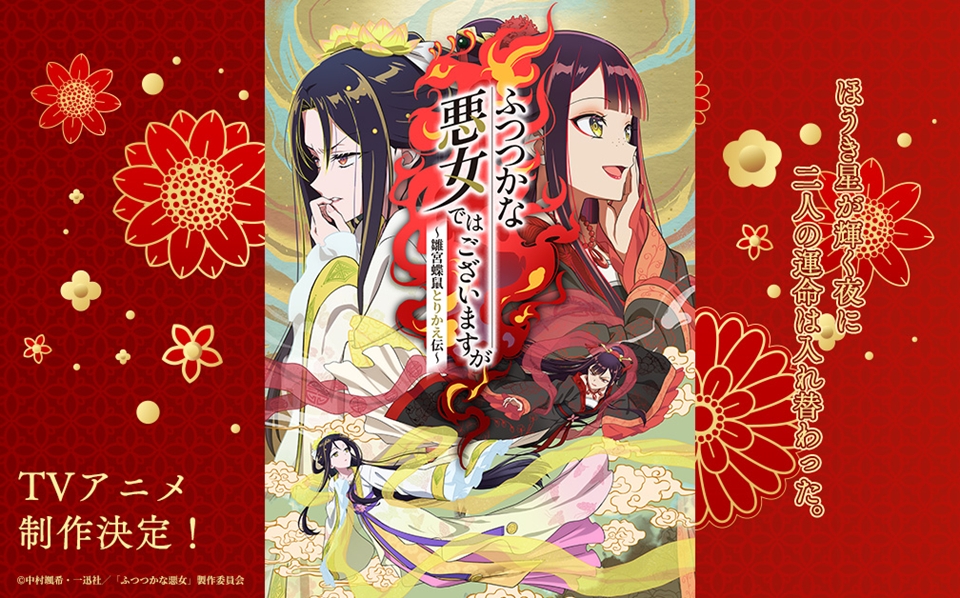Tiffany Chen contributed to this interview. After its debut in 2016, the Taiwan-based puppet action series Thunderbolt Fantasy brought the high-flying style of glove puppetry to a worldwide audience, thanks in part to the interest and passion of noted anime screenwriter Gen Urobuchi, who helped create the series . Just under a decade of experiencing the adventures of Shāng Bù Huàn and Lǐn Xuě Yā and the Sword Seekers, the series came to an end when Thunderbolt Fantasy Sword Seekers -The Finale- premiered in Japan this last February. Crunchyroll News was given the chance to interview two staff members from the Thunderbolt Fantasy production studio PILI International Media when they attended the Anime North convention in May to talk about bringing the series worldwide, collaborating with Urobuchi and what's next for the company. First, could you please both introduce yourselves? Jen-Jia Huang : Yes, my name is Jen-Jia Huang with PILI International Multimedia. We are a media production company of traditional Taiwanese puppetry and also its IP management company. I’m the Chief Brand Officer in charge of Thunderbolt Fantasy ’s brand marketing. I’m actually in the fifth generation that’s in charge of the company, and as our whole family has been in this business for over 100 years. Osmond : I’m Osmond, and I’m the youngest puppeteer master in the company. I’ve worked about five years in the company, but puppetry is my childhood love. I guess you both kind of explained it, but I was going to ask how long have each of you been involved with Thunderbolt Fantasy . But it sounds like from the beginning. Is that correct? Osmond : I’ve been involved with the Thunderbolt Fantasy project after it was released, but I’m mostly in charge of the puppetry on the company’s other brand, the PILI series. But I’m involved in Thunderbolt Fantasy when it comes to promotions, marketing, and such as a puppeteer. Thunderbolt Fantasy is a special project, so most of the puppeteers on there are mostly the more senior puppeteers on the production side. And then I’m guessing you Jen-Jia have been involved since the beginning, right? Jen-Jia : Yes, yes. What has surprised you about the reception to Thunderbolt Fantasy , especially as a collaboration between traditional Taiwanese puppetry and those in the anime industry? Were there any surprising reactions from fans? Jen-Jia : Puppetry is something that’s fairly commonly seen in Taiwan and it’s available on regular television almost on a daily basis. So we didn’t really expect an out-of-the-ordinary reaction from the Taiwanese fans. In a good way, not a bad way. But we were very surprised by the reaction that we got from overseas fans. For example, from season one episode one, there’s one scene where one of the characters literally blows up the other character’s head. And a lot of the YouTubers out there, when they’re reviewing, specifically pointed that out scene and said “Whoa, how is that done?” And the other thing people were very surprised about is that when they see a puppet, the puppet just kind of sits there as a static object until the puppeteer gets their hands on it, and the puppet seemingly comes to life, because of its expressiveness and the flexibility of the puppet. Is there anything you believe puppetry is able to showcase more than other forms of entertainment, like anime? What do you believe puppetry can do and highlight more than cartoons? Jen-Jia : Because puppets don’t really have the ability to express facial expressions, this allows the fans to invest their own interpretation of the expression of the personality of the characters. This is something that’s unique to puppetry. So for a fan, it means they have a much deeper layer of investment into the character themself, which allows them to be an even longer fan for the character or for the show, because everyone has their own interpretation of the character, so it’s a unique experience for each fan. Osmond : We have much better flexibility in terms of lighting that we can do with the puppets. I personally like being able to showcase the puppets in a marketing or convention situation where I can reenact certain scenes and certain poses and to be able to showcase the capability or the things we can do with a puppet to a live audience. And then also help attract newer fans to both puppetry and also to our work. Jen-Jia : And this is something that other animation media may not be able to do. As anime fans, we’re of course very familiar and very interested with Gen Urobuchi. What was it like working with him throughout the series? Jen-Jia : Everyone at PILI is deeply appreciative of everything Urobuchi-sensei has done for the show. We believe that he is a very creative, a very professional, and a very self-disciplined creator. During the entire collaboration process, he’s been very eager to be involved, working with PILI and on different aspects of the production process. He also has kind of taken promoting puppetry almost as if it’s his calling, and he also really cared deeply about the rest of the production team during the filming process. He also spent countless working hours with the production directly. It’s also very rare that he would miss a deadline, with scripts, with content, and such. So as a token of appreciation, our production team would take what he didn’t specifically write out in the storyline, and then we’ll put our own ideas into it to try to make the show better. Are you two interested in any particular anime series? And if so, did you draw any inspiration from any series in how you approach your work? Jen-Jia : Our CEO is actually very conscious of this. He has asked the production team every once in a while to check out other works and to find ideas, and that’s because he himself likes Hollywood movies and watches anime and other historical shows, that kind of media. So he asks people to also use that as a source for inspiration. Now, many of our puppeteers are actually fans of Jojo’s Bizarre Adventure , so sometimes in the show, you might see certain poses the character has are kind of uncanny in the show. Osmond : I personally don’t really watch anime, but as part of production, we do kind of watch here and there. But some inspiration we’ve taken is from Demon Slayer: Kimetsu no Yaiba and some of the characters’ sword drawing techniques. Have you seen an increase in interest in PILI’s works from fans outside of Taiwan since the release of Thunderbolt Fantasy ? Jen-Jia : Yeah, we’ve definitely seen an uptick in interest from overseas fans, especially since we’ve attended both Anime Central and Anime North the last two years. And the fans we’ve actually run into, the self-proclaimed “longtime PILI fans”; specifically, people who watched all the PILI series, and even people who’ve seen our work, Legend of the Sacred Stone , which is at this point about 25 years old. And we’ve also seen an increase in fan engagement on our X page since that’s an exclusively English page. We also had fans who came to Taiwan specifically just so they can tour the studio. Now that the series has wrapped up, do you have a particular favorite scene or character you enjoyed working with the most? Jen-Jia : Yes. So throughout the entire production, we’ve always had a joke character in the show. In the final chapter, we actually had a puppet created that was based on Urobuchi-sensei [laughs]. Basically, we 3D printed a likeness of him, and he was the boat master in the show and is actually voiced by Urobuchi-sensei himself. Osmond : I was not involved in the actual production of the show, but I always found that one of my favorite scenes was when Shāng Bù Huàn cuts open basically a dimensional rift, and he peers through the thing and it’s the character Su Huan-Jen, which was actually the main character from [ Legend of the Sacred Stone ]. Jen-Jia : The voice acting for that is actually AI recreated from the original voice actor of the character in Taiwanese. He was the original voice for Su Huan-Jen in the original PILI series, who has sadly passed away a while back, and they brought him back using AI voice recreation. It’s also his favorite character and the one Osmond cosplays. We forgot to mention that Osmond is also a cosplayer! So now that the series is also finished, what do you believe is next for PILI as a studio? Do you have any particular ambitions for what you would like to accomplish? Jen-Jia : Now that the project is wrapped up, and since within this project there’s been a lot of collaboration with international parties like script writers, production teams, and artists, of course the next step would be trying to further internationalize our brand by partnering with other international groups, and also to step out into other international markets. And of course, there will be continued collaboration with Urobuchi-sensei as well. Osmond : I would like to see more work come to us so we can continue to develop new ways to involve puppetry. I would also like to attend more marketing events so I can introduce all the new things we can do with puppets to the general audience. Is there anything in particular you would like to say to international fans of Thunderbolt Fantasy ? Jen-Jia : We really appreciate all the fans that have supported us throughout the collaboration, and we definitely would like to see our fans spread the word, tell their families, their friends about PILI, about our other products. You know, just get the word out that puppetry is awesome! Osmond : I’m also very thankful for our fans and their support of our work. And as puppeteers, we would definitely like to see them support us in the future so we can also get the opportunity to interact with them in person.


